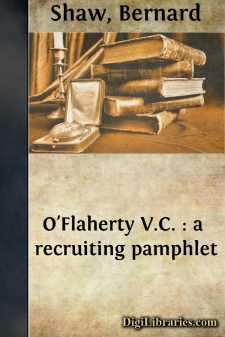Categories
- Antiques & Collectibles 13
- Architecture 36
- Art 48
- Bibles 22
- Biography & Autobiography 813
- Body, Mind & Spirit 142
- Business & Economics 28
- Children's Books 15
- Children's Fiction 12
- Computers 4
- Cooking 94
- Crafts & Hobbies 4
- Drama 346
- Education 46
- Family & Relationships 57
- Fiction 11829
- Games 19
- Gardening 17
- Health & Fitness 34
- History 1377
- House & Home 1
- Humor 147
- Juvenile Fiction 1873
- Juvenile Nonfiction 202
- Language Arts & Disciplines 88
- Law 16
- Literary Collections 686
- Literary Criticism 179
- Mathematics 13
- Medical 41
- Music 40
- Nature 179
- Non-Classifiable 1768
- Performing Arts 7
- Periodicals 1453
- Philosophy 64
- Photography 2
- Poetry 896
- Political Science 203
- Psychology 42
- Reference 154
- Religion 513
- Science 126
- Self-Help 84
- Social Science 81
- Sports & Recreation 34
- Study Aids 3
- Technology & Engineering 59
- Transportation 23
- Travel 463
- True Crime 29
Caesar and Cleopatra
by: Bernard Shaw
Categories:
Description:
Excerpt
ACT I
An October night on the Syrian border of Egypt towards the end of the XXXIII Dynasty, in the year 706 by Roman computation, afterwards reckoned by Christian computation as 48 B.C. A great radiance of silver fire, the dawn of a moonlit night, is rising in the east. The stars and the cloudless sky are our own contemporaries, nineteen and a half centuries younger than we know them; but you would not guess that from their appearance. Below them are two notable drawbacks of civilization: a palace, and soldiers. The palace, an old, low, Syrian building of whitened mud, is not so ugly as Buckingham Palace; and the officers in the courtyard are more highly civilized than modern English officers: for example, they do not dig up the corpses of their dead enemies and mutilate them, as we dug up Cromwell and the Mahdi. They are in two groups: one intent on the gambling of their captain Belzanor, a warrior of fifty, who, with his spear on the ground beside his knee, is stooping to throw dice with a sly-looking young Persian recruit; the other gathered about a guardsman who has just finished telling a naughty story (still current in English barracks) at which they are laughing uproariously. They are about a dozen in number, all highly aristocratic young Egyptian guardsmen, handsomely equipped with weapons and armor, very unEnglish in point of not being ashamed of and uncomfortable in their professional dress; on the contrary, rather ostentatiously and arrogantly warlike, as valuing themselves on their military caste.
Belzanor is a typical veteran, tough and wilful; prompt, capable and crafty where brute force will serve; helpless and boyish when it will not: an effective sergeant, an incompetent general, a deplorable dictator. Would, if influentially connected, be employed in the two last capacities by a modern European State on the strength of his success in the first. Is rather to be pitied just now in view of the fact that Julius Caesar is invading his country. Not knowing this, is intent on his game with the Persian, whom, as a foreigner, he considers quite capable of cheating him.
His subalterns are mostly handsome young fellows whose interest in the game and the story symbolizes with tolerable completeness the main interests in life of which they are conscious. Their spears are leaning against the walls, or lying on the ground ready to their hands. The corner of the courtyard forms a triangle of which one side is the front of the palace, with a doorway, the other a wall with a gateway. The storytellers are on the palace side: the gamblers, on the gateway side. Close to the gateway, against the wall, is a stone block high enough to enable a Nubian sentinel, standing on it, to look over the wall. The yard is lighted by a torch stuck in the wall. As the laughter from the group round the storyteller dies away, the kneeling Persian, winning the throw, snatches up the stake from the ground.
BELZANOR. By Apis, Persian, thy gods are good to thee.
THE PERSIAN. Try yet again, O captain....












